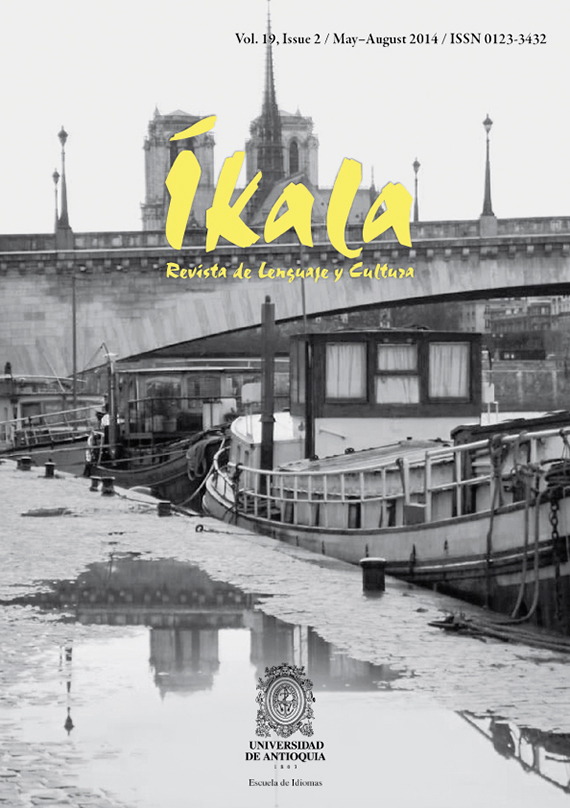Critical Pedagogy in English Teacher Professional Development: The Experience of a Study Group
DOI:
https://doi.org/10.17533/udea.ikala.v19n2a04Keywords:
teacher development, study groups, critical pedagogy, conscientization, critical awareness, humanizing pedagogyAbstract
In this article, we present the findings of a case study, which aimed to explore the experience of a study group, which was comprised of English teachers from different contexts. Data indicate that teacher development experiences should not only strive for the development of theoretical clarity but also for the development of critical awareness of the self and the world around. For this reason, this theoretical clarity and critical awareness may serve as the basis for the possibilities of a humanizing pedagogy in language teaching and learning.
Downloads
References
Referencias
Bórquez, R. (2007). Pedagogía crítica. México: Trillas.
Canagarajah, S. (2006). What are the issues? TESOL Quarterly, 40(1), 9-34.
Cárdenas, M., & Nieto, C. (2010). El trabajo en red docentes de inglés. Bogotá, DC: Biblioteca colección general.
Creswell, J. (2007). Research Design: Qualitative, Quantitative, and Mixed Methods Approaches.United States of America.
Crookes, G. (2003). A Practicum in TESOL: Professional development through teaching practice Cambridge: Cambridge University Press.Crookes, G. (2009). The practicality and relevance of second language critical pedagogy. American Association for Applied Linguistics conference, 1-16.
Freire, P. (2000). Pedadogy of the oppressed. New York, NY: The Continuum International Publishing Group, Inc.
González M., A. (2007). Professional development of EFL teachers in Colombia: Between colonial and local practices. Íkala, revista de lenguaje y cultura, 12(18), pp. 309-332.
Gounari, P. (2008). Devolviéndole lo crítico al lenguaje: una agenda crítica en la pedagogía de los idiomas. Revista Educación y Pedagogía, 10(51), 51-64.
Johnson, K. E. (1996). The role of theory in L2 teacher education. TESOL quarterly, 35(4). pp. 765-771.
Kincheloe, J. (2004). Critical pedagogy. New York, NY: Peter Lang Primer.
Kumaravadivelu, B. (2001). Toward a postmethod pedagogy. TESOL quarterly, 30(4). pp. 537-560.
McLaren, P. (1998). Life in schools: An introduction to critical pedagogy in the foundations of education (3rd ed.). New York: Longman.
Norton, B., & Toheey, K. (2004). Critical pedagogies and language learning. Cambridge: Cambridge UniversityPress. 327-346.
Pennycook, A. (1990). Critical pedagogy and second language education. System, 18(3), 303-314.
Pennycook, A. (1999). Introduction: Critical approaches to TESOL. TESOL quarterly, 33(3). pp. 765-771.
Pennycook, A. (2004). Critical moments in a TESOL praxicum. In B. Norton & K. Toohey (Eds.)
Critical Pedagogies and Language Learning. Cambridge: Cambridge University Press. 327-345.
Pérez, M.S., & Canella, G. S. (2011). Using situational analysis for critical qualitative research purposes. Qualitative inquiry and global crises. Walnut Creek, CA: Left Coast Press, 97-117.
Downloads
Additional Files
Published
How to Cite
Issue
Section
License
Copyright (c) 2014 Íkala, Revista de Lenguaje y Cultura

This work is licensed under a Creative Commons Attribution-NonCommercial-ShareAlike 4.0 International License.












